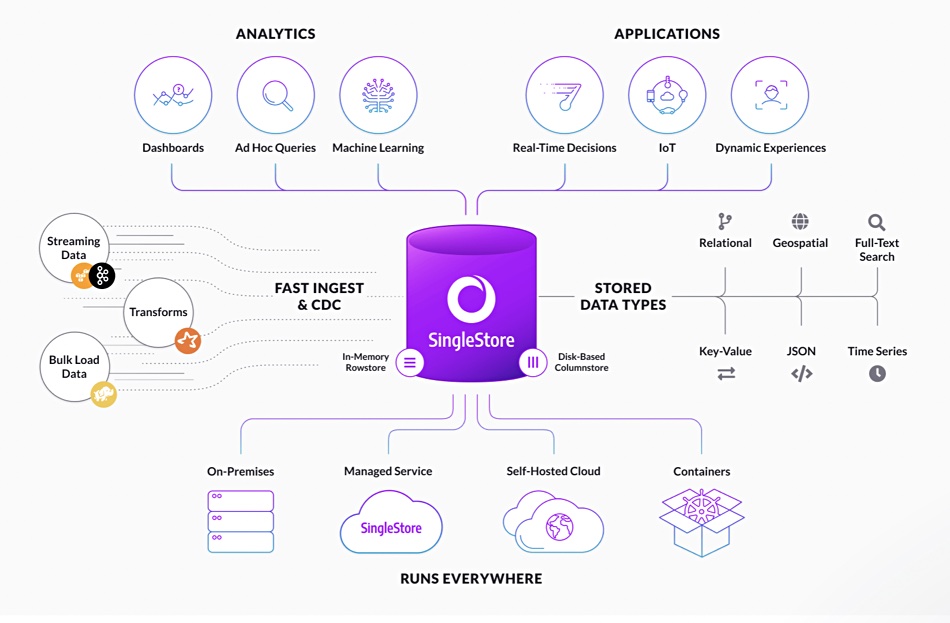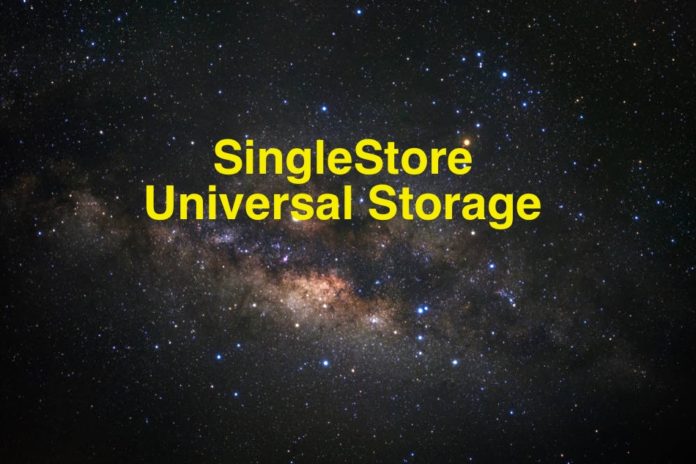IBM has invested in SingleStore — the re-branded MemSQL that’s building a distributed, relational SQL database for both transaction and analytic workloads and is runs on-premises and in the three main public cloud clouds.
SingleStore raised $80 million in an F-round of funding in September. In 2020 it pulled in $50 million in debt finance and $80 million in an E-round. The company was founded in 2011 and total funding to date is $264 million, ignoring the $50 million of debt financing. It now transpires that IBM Ventures took part in the F-round.

The announcement of IBM’s participation was accompanied by a statement from Raj Verma, SingleStore CEO: “Our expanded relationship with IBM is another proof point that SingleStore’s modern cloud database for data-intensive applications is the right solution at the right time. We look forward to working closely with IBM.”
Daniel Hernandez, General Manager of IBM Data and AI, said: “For many enterprises, data has largely remained siloed and dispersed, keeping it from being readily accessible and usable for them to apply AI and make informed business decisions. … With IBM’s investment in SingleStore, we continue our focus to make sure clients can break down silos and put their data to work.”
IBM’s investment — we don’t know the actual amount — builds on existing SingleStore-IBM relationships, with SingleStore available in IBM Cloud Pak for Data offering, its certification on Red Hat OpenShift, and availability in the Red Hat Marketplace.
SingleStore and IBM say they will collaborate to help customers better govern diverse distributed data, accelerate data access, and simplify data management. A cited example would be delivering a data fabric architecture to access and manage distributed data, making it available across an enterprise to all users, and providing unity and governance.

We think SingleStore availability in the IBM public cloud will soon become a reality. This move is emblematic of ongoing general data silo-bridging and abstracting moves in the database and file/object storage space. Witness Alluxio, Hammerspace, Komprise, StrongBox and many others.








